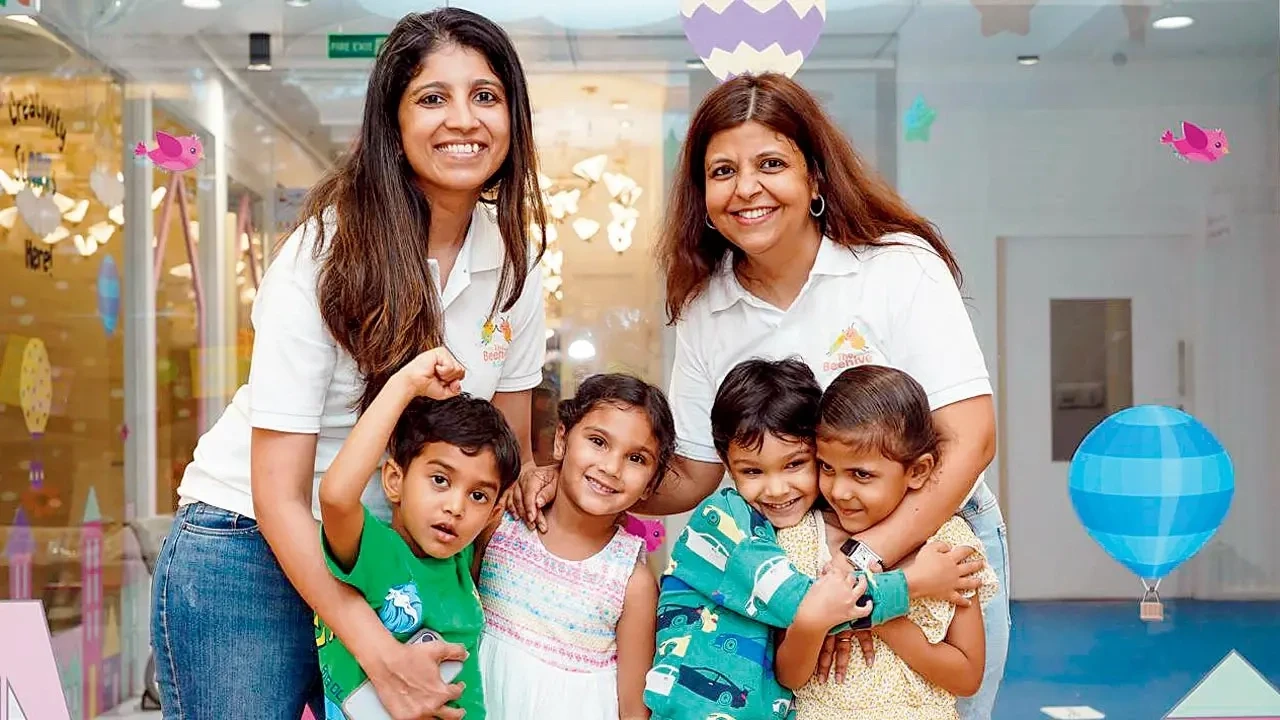Bharati Mohan and Trishika Shetty had something in common when they first met — their children.
Like most mothers of five-year-olds both Shetty and Mohan were strung out from navigating the chaos of preschool routines based in Powai.
Their bond was instant as it was rooted in shared concerns about raising children in a city where parenting often means juggling work commitments, finding not just any but the right kind of activities and minimising screentime. “One of the key things which drew both of us to this idea is the fact that both of us are mums to five-year-olds,” says Mohan, who is bestowed with double the fun with her twins. “This constant balancing act has been an issue very close to both our hearts for the last four years.”
Pic/iStock
The solution they found is Motley Otters — a first-of-its-kind, on-demand activity centre for children in Mumbai. “Most of the activities that we sign up the kids for require a commitment (from the parents) — a one-month package, with classes only happening two or three hours a week,” explains Shetty. “Kids at this age don’t have that kind of focus or clarity about what they want to do.” Motley Otters help parents achieve this clarity by mapping out these activities for their kids, with their consent of course.
The centre opened its doors on August 11 and operates on a model that is boredom-proof. “Every hour, there’s a different activity,” Shetty says. “For example, today the first hour was art and craft — ice painting. The second hour was puppetry — finger puppets. The third hour was fitness and games.” For parents, this is key because they can choose an activity and match their children’s drop off time to that particular time — Monday to Friday, 3.30 to 6.30 pm — allowing them the choice to let their child engage in an activity of their choosing without the stress of having to catch up with the rest of the group if they miss out the beginning, middle or end of the three hours.
At its core, the project is an attempt to create a missing third space for children in the city
The flexibility is deliberate. “This helps kids identify where their interest lies. If they love something, they’ll keep coming back for it. If not, they move on. It is a place where choice and play rule over rigid schedules,” says Mohan.
Motley Otters has set the intention at the outset — that this isn’t just about the children. It is designed as a three-way platform — benefiting kids, parents, and teachers. “We are giving a platform to trained teachers and experts as well,” notes Mohan. “Building a community for exchange of ideas and curriculum.” Parents, meanwhile, gain breathing space and support. “In nuclear families, children are often left to nannies, who aren’t equipped to keep them engaged,” she says. “This space provides a more engaging environment with trained experts, plus social interaction with other kids. It’s also about community building for parents themselves.”
Drawings made by the kids during craft hour
In each class, thought has gone into not just keeping children busy, but also grow emotionally. Storytelling sessions, for instance, has been designed by psychologists with social-emotional learning in mind. “Each story tries to deal and familiarise them with a certain emotion in a safe setting,” Shetty explains. “It could be fear — like The Monster Under My Bed — followed by an activity. Or it could be anger, or a sense of identity. Every story is trying to discuss big emotions, but in a child-friendly manner.”
Other classes are equally varied, from art and craft to Krav Maga self-defence and fitness games. “It’s unstructured-structured learning, if you may call it that,” says Mohan. “The aim is to provide a holistic childhood.”
Kids participate in different activities at Motley Otters
Underlying it all is a worry every modern parent shares: screens. “We feel there is a massive addiction to devices nowadays,” Mohan says. “All research indicates that early addiction to devices leads to depression at ages as young as eight or nine.”
For Shetty and Mohan, the goal is bigger than one centre. “Five years down the line, we hope to be in the top four or five cities of the country,” says Mohan. “We want children to proudly say, ‘I’m a Motley Otters kid.’”
At its core, the project is an attempt to create a missing third space for children in the city — a place beyond school and home, where they can just be. Shetty points out, “Play areas are becoming redundant. They have the same trampoline, ball pool, and sandpit. How long can you keep doing that?” she says.
Motley Otter’s experiment may be just two weeks old, but the concept has seemed to hit a gap in the market. Parents have already asked them to open on Saturdays, which they will begin in September. Mohan summarises perfectly, “We just want kids to have the kind of happy, full childhood we had — full of play, creativity, and community.”
